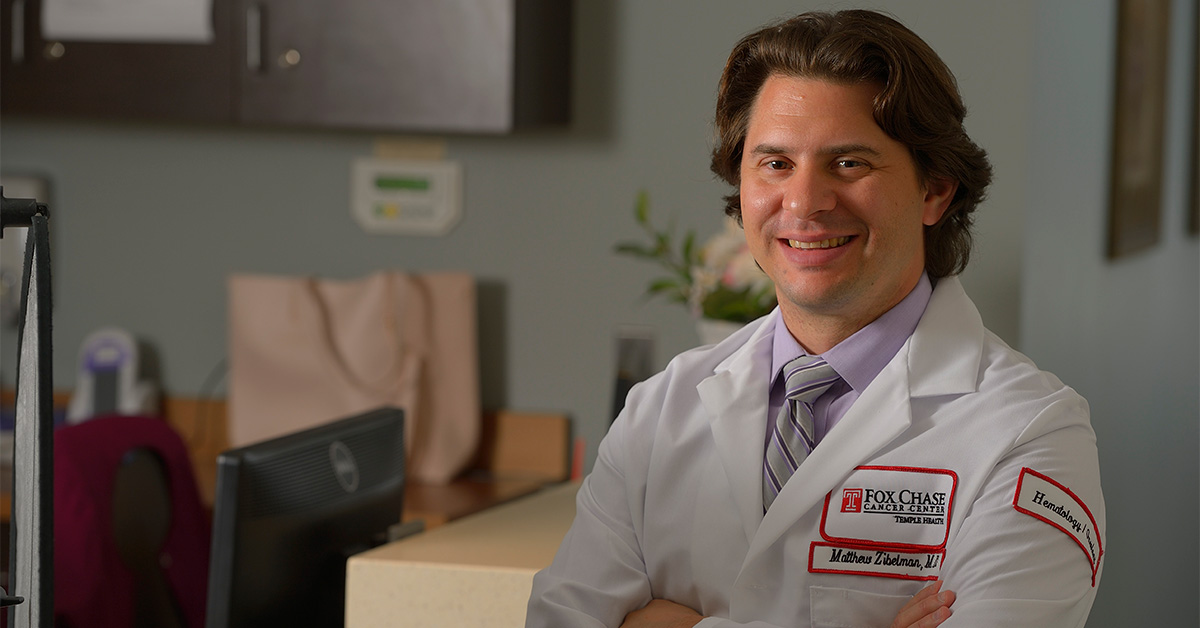
PHILADELPHIA (September 7, 2023) — Researchers at Fox Chase Cancer Center have published the results of a phase 1 study that showed that the cytokine interferon-gamma may help reduce serious immune-related adverse events that can occur with the use of the immune checkpoint inhibitor drug nivolumab.
Immune checkpoint inhibitors block immune checkpoint proteins from binding with their partners, allowing T cells to kill cancer cells. Interferon-gamma is a cytokine, or an immune cell secretion, that plays an important role in regulating immune responses.
The study included 26 patients across several cancer types. Patients were treated with increasing doses of interferon-gamma along with a fixed dose of nivolumab to evaluate safety and determine the optimal dose of interferon-gamma to study in a subsequent trial.
“What was most interesting during this trial was that we did not see the normal immune side effects we see with nivolumab, which was unexpected,” said Matthew Zibelman, MD, lead author on the study and Associate Professor in the Department of Hematology/Oncology at Fox Chase.
“We can’t say for sure why that is because the study is relatively small, but one possibility is that the interferon-gamma protected patients from developing immune side effects. Some of the correlative research we performed as part of the trial supported this as a possibility, but further research would be needed to prove if this is the case,” he added.
“While this study has shown that the combination of nivolumab and interferon-gamma is safe, which was the goal, the anti-cancer response was modest. One patient did have a complete response and remains cancer free. However, while some other patients saw stability in keeping their cancer from growing for a short time, there were no other cancer responses in patients,” said Zibelman, who conducted the study with a team of physicians and scientists at Fox Chase.
Immune checkpoint blockades offer potential for some patients to respond to cancer treatment. However, most patients either do not respond to this therapy or develop a resistance to it. Discovering new ways to optimize immune checkpoint blockades in tumors that are less likely to respond or that have become resistant to these single drugs without increasing immune-related side effects is crucial.
“My hope is to pursue more research to understand if the interferon-gamma could work to help minimize or prevent side effects that patients experience from immune checkpoint inhibitors,” said Zibelman.
The study, “A Phase 1 Study of Nivolumab in Combination With Interferon-Gamma for Patients With Advanced Solid Tumors,” was published in Nature Communications.